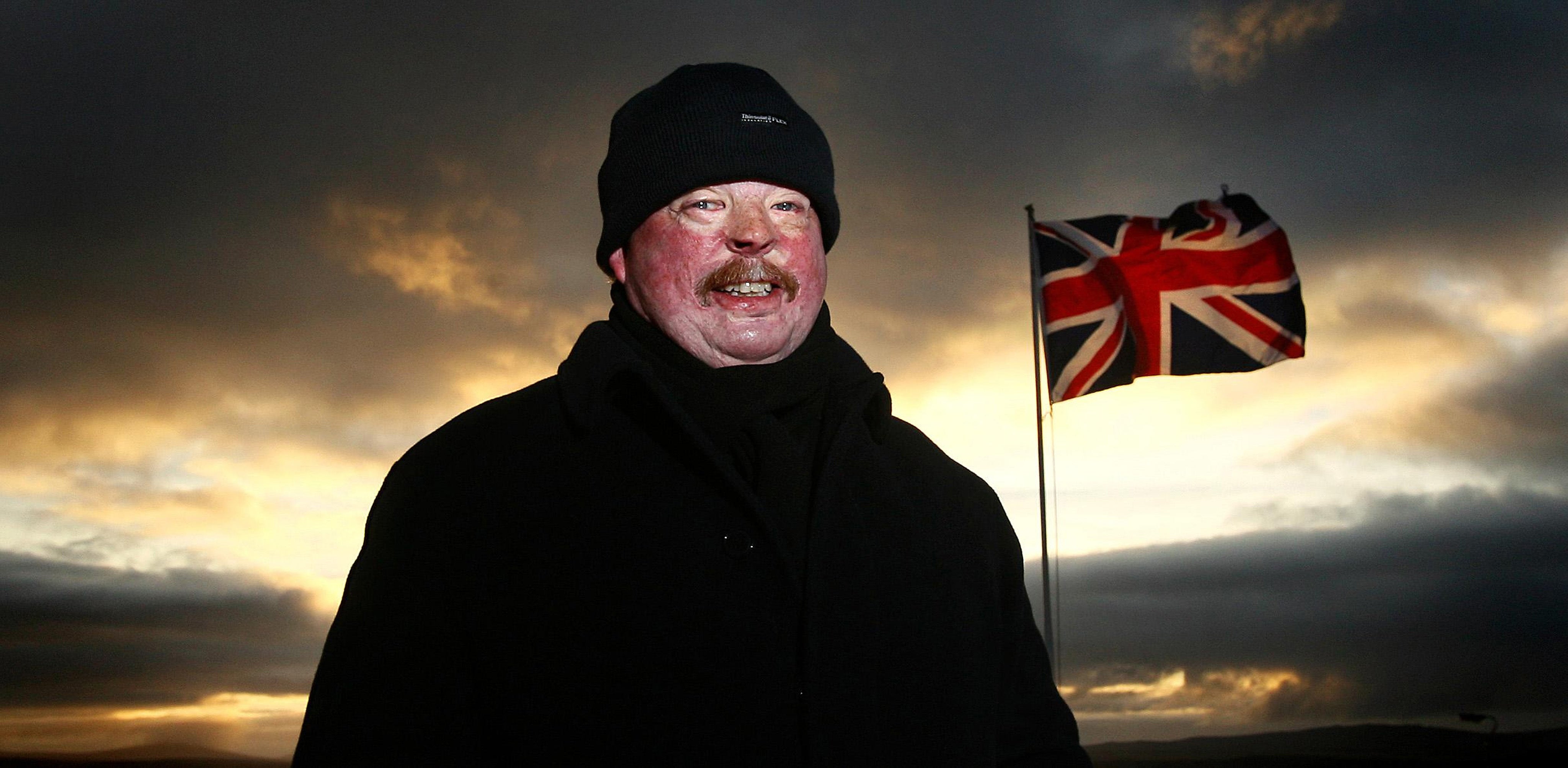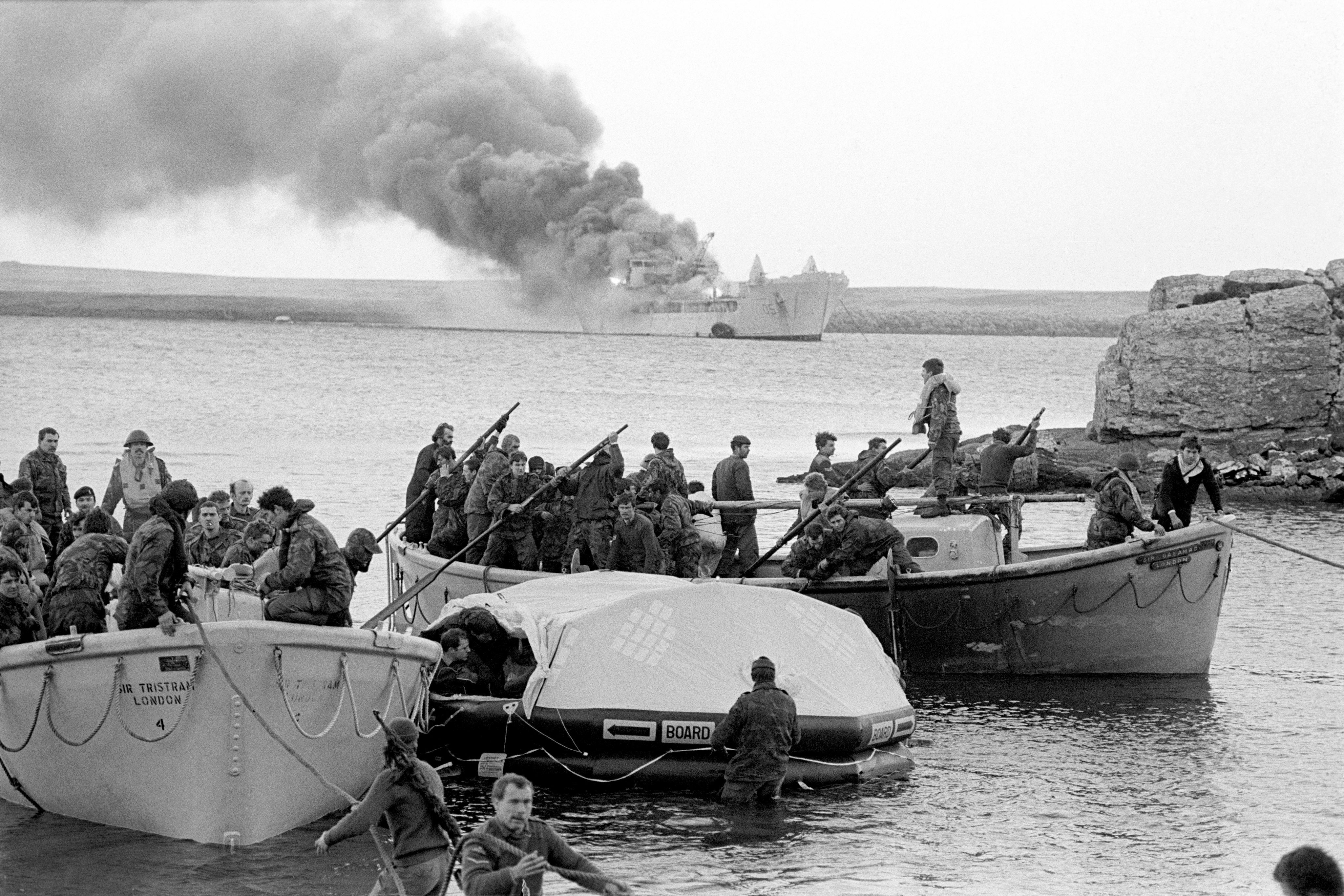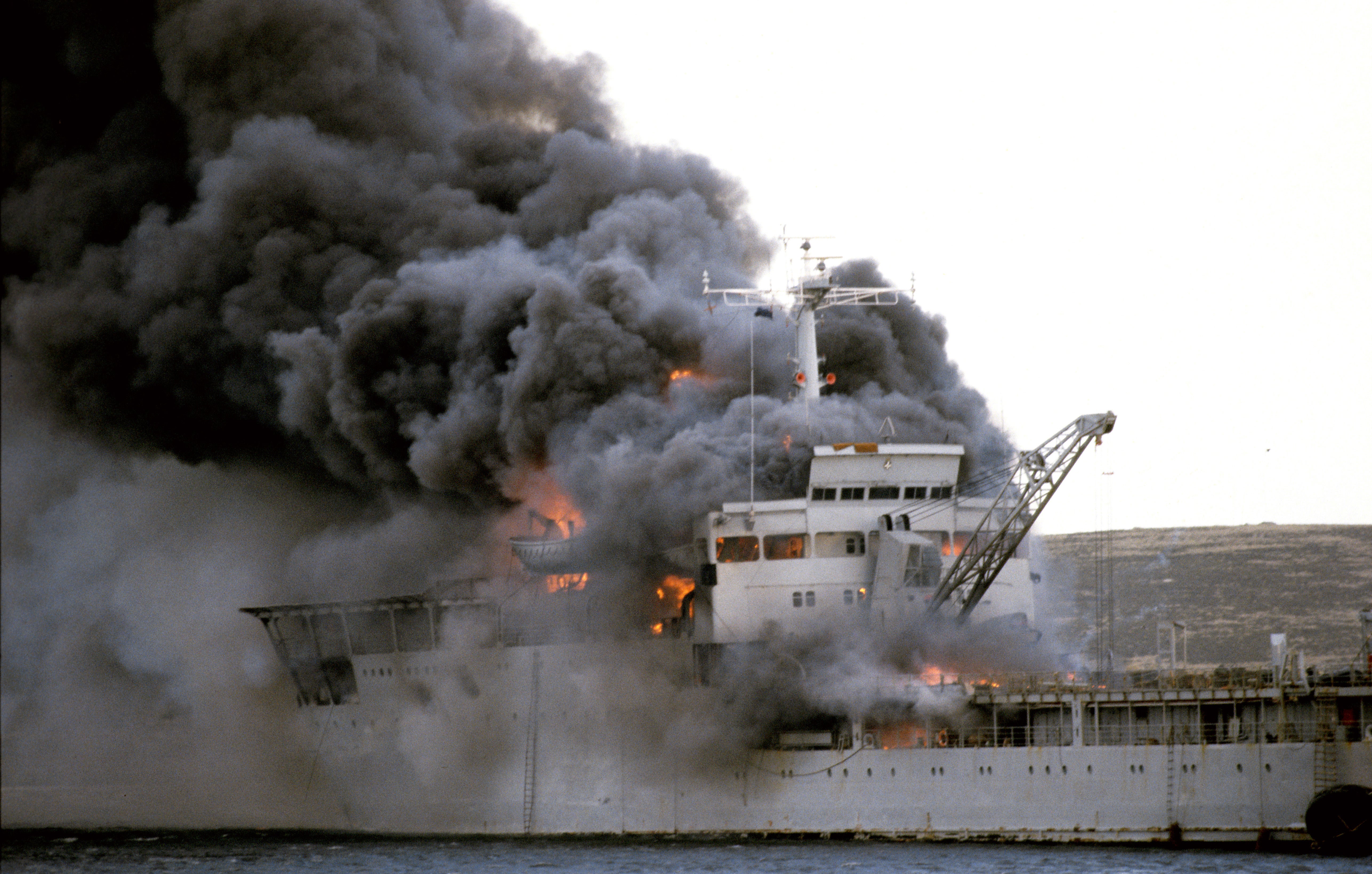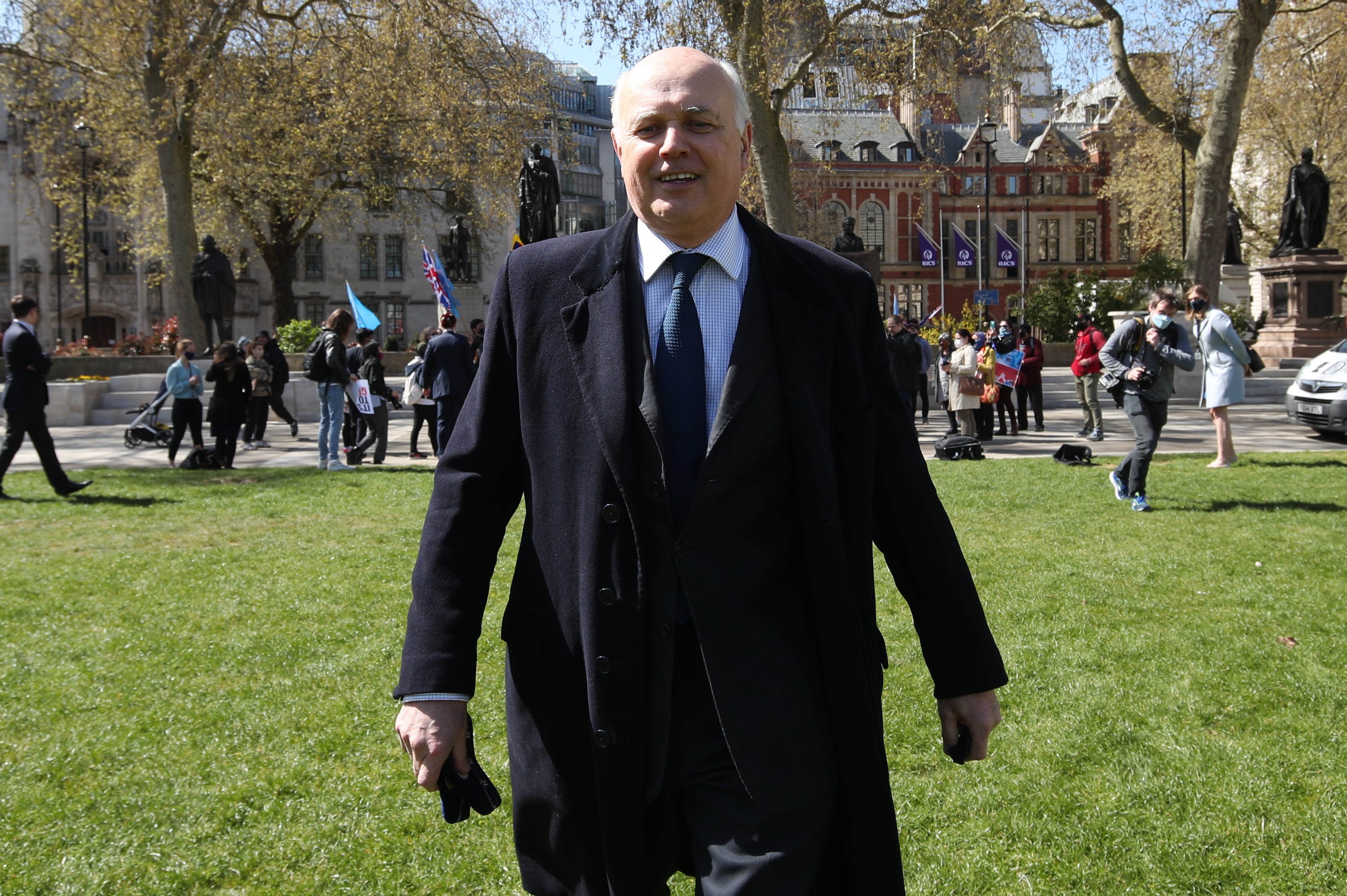Simon Weston leads calls to release secret Falklands war files on Sir Galahad bombing
Ministry of Defence says it cannot release documents relating to bombing of Sir Galahad

Your support helps us to tell the story
From reproductive rights to climate change to Big Tech, The Independent is on the ground when the story is developing. Whether it's investigating the financials of Elon Musk's pro-Trump PAC or producing our latest documentary, 'The A Word', which shines a light on the American women fighting for reproductive rights, we know how important it is to parse out the facts from the messaging.
At such a critical moment in US history, we need reporters on the ground. Your donation allows us to keep sending journalists to speak to both sides of the story.
The Independent is trusted by Americans across the entire political spectrum. And unlike many other quality news outlets, we choose not to lock Americans out of our reporting and analysis with paywalls. We believe quality journalism should be available to everyone, paid for by those who can afford it.
Your support makes all the difference.Falklands War hero Simon Weston has joined veterans and cross-party MPs in renewed calls for the government to unseal secret files on the bombing of the Sir Galahad.
The Royal Fleet Auxiliary ship and its sister vessel Sir Tristram, which was moored next to it, became sitting ducks for Argentian Air Force attacks on 8 June 1982. The ships were consumed by fire, killing 56 men and injuring another 150 in the bloodiest event of the war.
An official inquiry, held in private in 1982, found a delay in offloading the Welsh Guards from Sir Galahad was “confused by the number of people involved in decision making” but was not negligent. A trove of witness statements and other documents put before the inquiry at the time have not been made public and are due to remain sealed until 2065.
Former home secretary Dame Priti Patel said the secrecy around the operation seemed like “an institutional cover-up”, while former Tory leader Iain Duncan Smith, who served in the Scots Guards, said it was important veterans did not die before the truth was uncovered. Chris Bryant, Labour MP for Rhondda who is campaigning on behalf of his constituents, said: “The aim is to get to the truth, whatever that truth may be”.
A recently uncovered account of the attack, given by Captain Robin Green who commanded Sir Tristam, has shed new light on the “folly” of the attempted landing of men near Fitzroy.
In the statement, released to Falklands veteran Colonel Crispin Black through a freedom of information (FOI) request, Cpt Green recalled that the operation was “hastily mounted without sufficient thought or planning”. He said that he did not receive the extra air raid ammunition that he had requested and that the “fine” weather left the ships “fully exposed for enemy air attack”.

Mr Black, a retired colonel who has written a book about the disaster, told an event in parliament on Monday that veterans needed full disclosure of the information presented to the 1982 inquiry.
“None of us, whatever happened to us on that day, are whining about that. It was a war. But we haven’t had the truth and that is what this is about,” he said.
He pointed to the secrecy of the navy-dominated inquiry, saying: “We can’t see witness statements, we don’t even have a list of witnesses. We don’t even know who sat on the inquiry board. Why can’t we know who gave evidence and what they said?”
The Ministry of Defence has refused to release further documents relating to the inquiry under FOI because they include personal data and publishing the information would “constitute a breach of confidence”.

Following the disaster, some people blamed the Welsh Guards for not leaving the Sir Galahad earlier and Mr Weston, who suffered 46 per cent burns to his body in the bombing, addressed the pain caused by these accusations. He said: “I want the snipping and the lies and the rumours to end. We suffered enough then, we shouldn’t suffer any more. All we want back is our good name.”
Katie Gibby, who was just five months old when her father Mark Gibby died in the attack, told the meeting of MPs and campaigners: “I was 10 years old when I first saw a picture of his ship on fire. I looked and I thought why is that ship in broad daylight? And I was only 10. Us families deserve the truth and I don’t want to wait another 40 odd years to hear it.”

Sir Iain described the disaster as a “massive screw up”. “What the hell were they doing there? On a boat, unable to land the men first, sending the equipment on before them, and in broad daylight when there was an absolute requirement for air defence. We have to have all this information out. Not just for everyone to know – but so it never happens again.”
And Dame Patel said there “seems to be lots of missing pieces of the jigsaw puzzle”, adding: “It seems self-evident that there has been an institutional cover-up, there is no doubt about that.”
Sir Bernard Jenkin MP said there was “no excuse to leave those stones unturned now”. He said the disclosure would alleviate the suffering of veterans and help the Navy learn lessons from the “very bad command chain” that contributed to the disaster.

A government spokesperson said: “The losses of RFA Sir Tristram and Sir Galahad due to enemy action were a tragedy. The sacrifice made by those onboard will not be forgotten, and we remain grateful to all the armed forces personnel and civilians who bravely served in the Falklands conflict.
“A Board of Inquiry was convened in 1982 to investigate the losses and we remain confident in the board’s findings and recommendations.”




Join our commenting forum
Join thought-provoking conversations, follow other Independent readers and see their replies
Comments